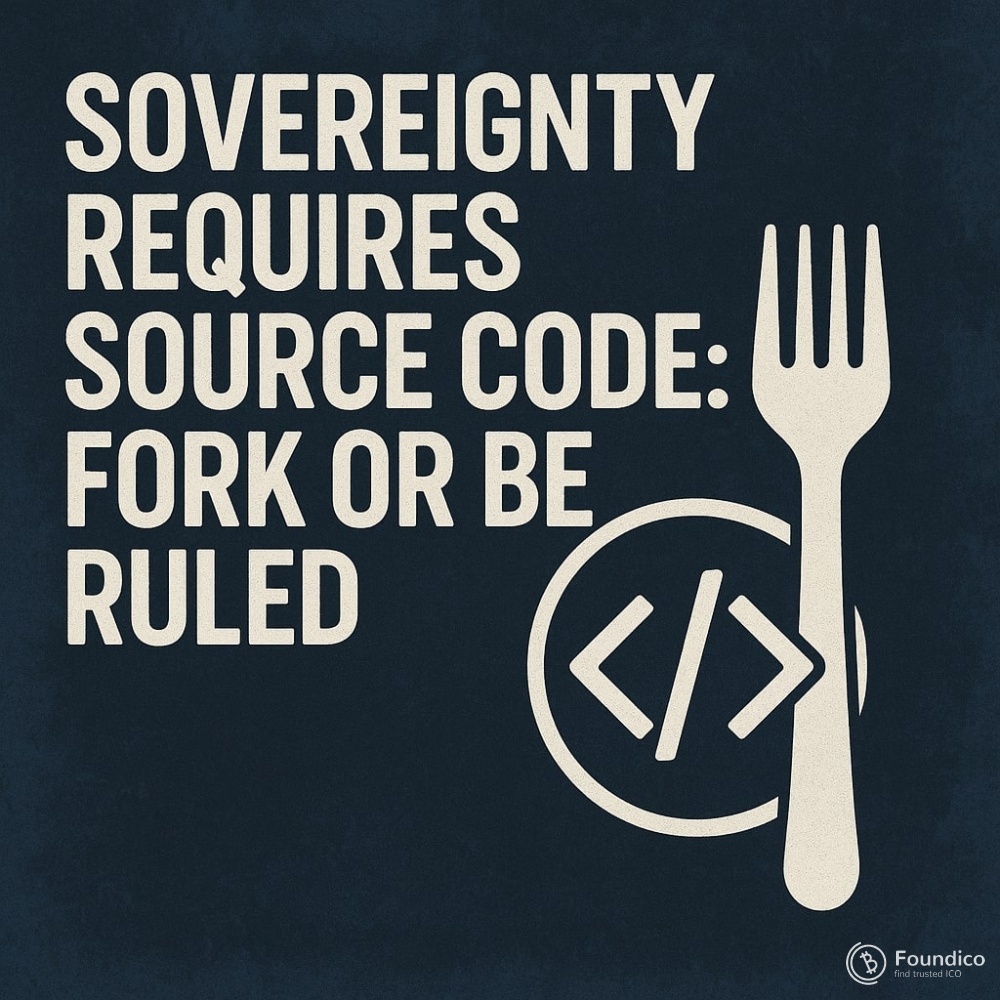Sovereignty Requires Source Code: Fork or Be Ruled

By Dr. Pooyan Ghamari, Swiss Economist and Visionary
In an increasingly digital age, the concept of sovereignty no longer stops at borders, armies, or parliaments. True sovereignty now extends into the digital architecture that underpins societies and economies. Whether for individuals, companies, or nation-states, the source code — the very DNA of digital systems — has become a decisive factor in determining autonomy. Without control of the code, sovereignty becomes performative at best and illusory at worst.
The Code as the New Constitution
In classical political theory, sovereignty was anchored in constitutions, legal frameworks, and the monopoly of force. Today, source code functions as a silent constitution of the digital era. It sets the rules of engagement, defines permissions, and allocates power invisibly. Who writes the code, who controls the repository, and who has the ability to fork or alter it determines the structure of power itself.
For states, this means that depending on foreign-controlled platforms, algorithms, and infrastructures creates a hidden dependence. For corporations, it means surrendering strategic decision-making to black-box technologies. And for individuals, it means living inside systems where choices are pre-coded by others, limiting freedom in subtle but profound ways.
Forking as an Act of Freedom
Forking — the act of copying and modifying an existing source code to create a new trajectory — is more than a technical maneuver. It is a philosophical statement of independence. To fork is to say: we will no longer be ruled by rules we cannot change.
Nations that build their own digital ecosystems, companies that develop open-source alternatives, and communities that fork code to serve their needs are reclaiming sovereignty. Forking embodies resilience: when centralization threatens autonomy, duplication and diversification become the path to freedom.
Dependence Equals Subordination
The opposite is equally true. Dependence on closed systems, proprietary algorithms, or centralized platforms is a form of subordination. This dependency erodes sovereignty because it gives external actors the ability to dictate rules, extract value, or even paralyze vital infrastructure. Just as an army once defended borders, control over code now defends digital borders. Sovereignty cannot survive without technical autonomy.
The Call for Digital Sovereignty
To secure sovereignty in the 21st century, nations, institutions, and individuals must embrace the philosophy of “fork or be ruled.” This requires:
-
Investment in local talent capable of writing and maintaining core code.
-
Open-source collaboration as a defense against monopolistic control.
-
Critical infrastructure independence in communications, finance, and governance technologies.
-
A mindset shift that understands sovereignty not only as political power but as digital self-determination.
Sovereignty today is no longer written only in legal texts but in source code. Those who cannot access, audit, or modify the code of their digital environment live under rules imposed by others. Forking is not merely technical; it is the ultimate act of reclaiming independence. In this new era, sovereignty requires source code — and the courage to fork when necessary.

 Best Wallet - Best Wallet Token, revolutionizing the Web3 experience. $BEST token reduces transaction fees, grants exlusive early access to the hottest presales and gamifies wallet engagement.
Best Wallet - Best Wallet Token, revolutionizing the Web3 experience. $BEST token reduces transaction fees, grants exlusive early access to the hottest presales and gamifies wallet engagement.